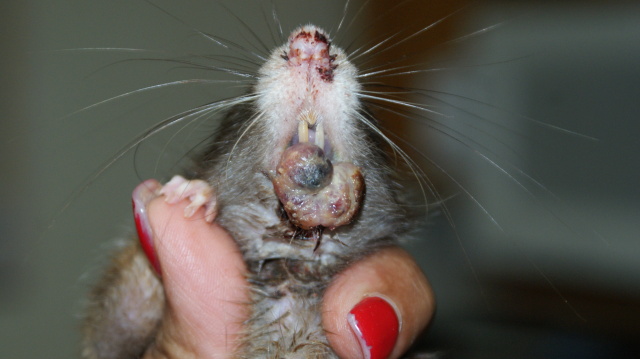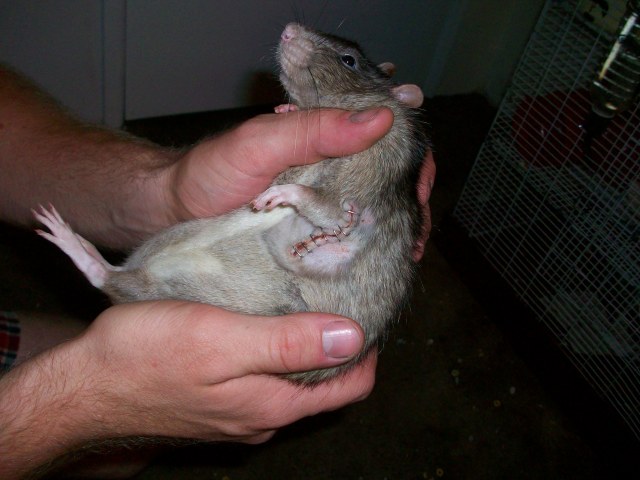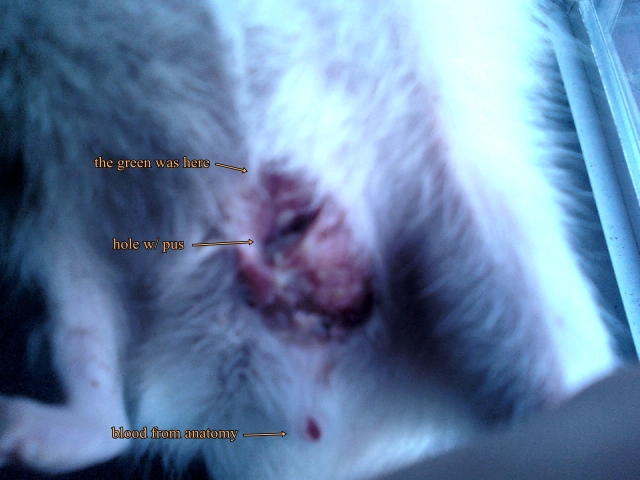QuestionToday I took my rat, Crass, to see the vet about a lump in her armpit. after feeling the lump for several minutes she told me that it is most likely a benign mammary tumor, but that due to the location surgery might be too risky. She said the tumor felt pretty connected, and that because of the amount of major nerves and blood vessels in the area, Crass could end up with a paralyzed front leg if we try to remove the tumor. My questions is, if she does end up with a limb she can't use, will she still be happy and functional? Or do I just let the tumor grow until I have to put her down?
I really don't know what to do, I've never had to make a decision like this before. What would you do if it was your rat?
AnswerI would find another vet to be honest. This is a very common place for tumors to grow and surgery is usually not a huge ordeal in this area. If your vet has the proper surgical implements she should be able to avoid these blood vessels to prevent excess bleeding but also to be able to avoid nerve damage. Can the rat live without the use of one of the forelimbs? Yes, she probably could adjust just fine. Rats adjust fine even when they have hind leg paralysis due to old age and in fact,someone I know rescued a little baby rat that had no front paws at all, only stumps, and she even climbed like a champ! I have had rats that have had to have an eye removed due to massive infection and they do just fine, as if nothing ever happened. How old is your girl? Please go private and let me know the name of your vet so I can check her credentials to be sure this vet is even right for the job of doing this surgery. Not ALL vets can safely perform surgery on rats and have a safe outcome, thats for sure. Not long ago someone wrote to me after her little female died during a spay. Turns out the vet took out the kidneys rather than the ovaries (this was discovered when another vet did the necropsy) The list goes on and on, but scary thing is, these vets claimed they were trained in exotics, which is sadly not always true. Some vets have what is called a special interest in exotics but this only means they have an interest in them, not formal training, which is a big big factor when choosing a vet to treat your rats.

 Do you think my rat is pregnant/ When will she have them?
Question
Belly picture.
I bought a rat from a breeder,
Do you think my rat is pregnant/ When will she have them?
Question
Belly picture.
I bought a rat from a breeder,
 the lump on the lip of my rat
Questionthe rat with a lump on
QUESTION: Hi, my
the lump on the lip of my rat
Questionthe rat with a lump on
QUESTION: Hi, my
 Rat-O being adorable
QuestionIncision closed with s
QUESTION: Hi Sand
Rat-O being adorable
QuestionIncision closed with s
QUESTION: Hi Sand
 Too many rats...
QuestionQUESTION: Dear Sandra,
Youve helped me before
Too many rats...
QuestionQUESTION: Dear Sandra,
Youve helped me before
 abcess
QuestionQUESTION: My rat, Poppy, broke out with an absc
abcess
QuestionQUESTION: My rat, Poppy, broke out with an absc